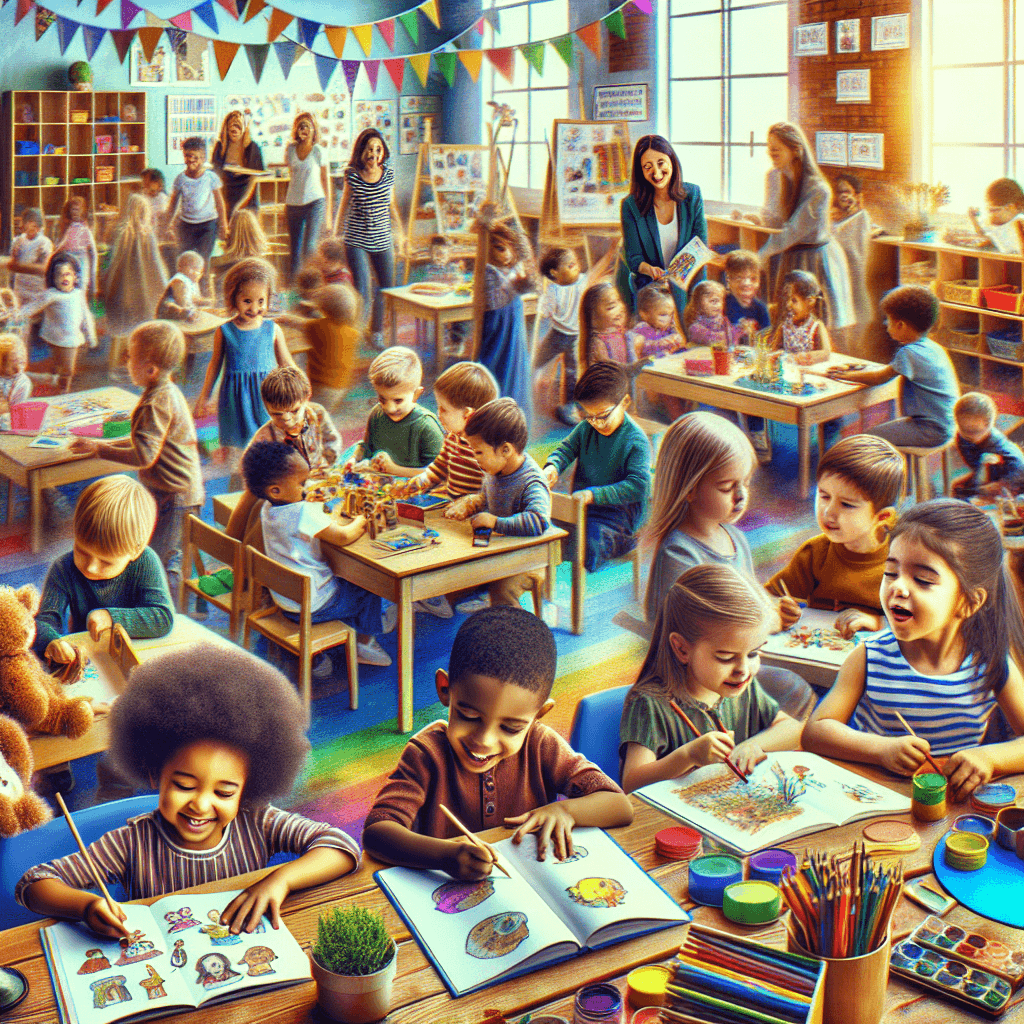Top 3 Early Childhood Education Systems for Optimal Development
Early childhood education (ECE) is a pivotal stage in a child’s development. It sets the foundation for lifelong learning, behavior, and health. By the time children enter kindergarten, their early experiences and interactions have a profound impact on their success both inside and outside the classroom. This blog explores the top three early childhood education systems that have proven to be most effective for optimal development.
1. Montessori Education System
Overview
The Montessori method, developed by Dr. Maria Montessori, is one of the most well-known ECE systems globally. It emphasizes child-centered learning that encourages independence, freedom within limits, and respect for a child’s natural psychological development.
Key Features
- Prepared Environment: The learning environment is meticulously designed to enable children to engage in learning activities of their own choice.
- Mixed Age Classrooms: Children of different ages learn together, fostering peer learning, leadership, and collaboration.
- Autoeducation: Children use didactic materials to educate themselves, encouraging self-discipline and concentration.
Benefits
The Montessori system promotes independence, self-confidence, and a love for learning. Children develop critical thinking, problem-solving skills, and social abilities by interacting with peers in mixed-age groups. Research shows that Montessori-educated children often outperform their non-Montessori peers in math and reading skills, and exhibit superior social skills.
2. Reggio Emilia Approach
Overview
Originating in Reggio Emilia, Italy, the Reggio Emilia approach is a child-centered philosophy of education focused on preschool and primary education. It views children as active participants in their learning process and emphasizes the importance of community and collaborative learning.
Key Features
- Project-Based Learning: Children engage in long-term projects that are relevant and meaningful, encouraging exploration and critical thinking.
- Documentation: Teachers document children’s thoughts and progress, which promotes self-assessment and reflection.
- Environment as the Third Teacher: The learning environment is carefully curated to inspire inquiry and discovery.
Benefits
The Reggio Emilia approach fosters creativity, communication, and social interaction. Children learn to express their thoughts and feelings effectively through various forms of expression, including art, music, and drama. Parents and community members are also deeply involved, creating a supportive network that enhances the learning experience.
3. Waldorf Education System
Overview
Waldorf education, founded by Rudolf Steiner, is a unique approach that integrates academic, artistic, and practical disciplines. It takes a holistic approach, focusing on nurturing the head, heart, and hands.
Key Features
- Play-Based Learning: Emphasis on imaginative play allows children to develop creativity and social skills.
- Integrated Curriculum: Subjects are taught in an interdisciplinary manner, often through storytelling, art, and movement.
- Rhythms and Routines: Structured yet flexible routines help children develop a sense of security and predictability.
Benefits
Waldorf education nurtures a child’s intellectual, emotional, and physical development. Students develop a strong sense of curiosity, emotional intelligence, and resilience. As they progress, they are equipped with holistic skills that prepare them for the complexities of modern life.
Conclusion
Each of these early childhood education systems—Montessori, Reggio Emilia, and Waldorf—offers distinct approaches tailored to various aspects of child development. They share common goals of promoting independence, creativity, and holistic growth. Understanding the unique features and benefits of each system can help parents and educators choose the best educational path for their children, ensuring a bright and successful future.
If you’re interested in learning more about early childhood education or exploring these systems further, feel free to browse our articles and resources. We are committed to providing the latest and most relevant information to help you in your educational journey.




